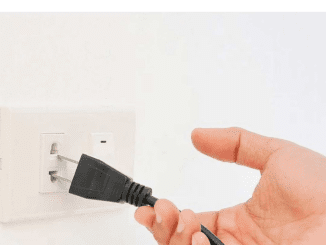When you hear the words heart attack, you probably imagine something dramatic—clutching the chest, collapsing to the floor, and calling 911. But here’s the twist: not all heart attacks come with blaring alarms. In fact, 1 in 5 heart attacks is silent, according to the American Heart Association. That means it can creep up on you quietly, doing real damage—without ever making a grand entrance.
These silent events are dangerous precisely because they’re so easy to dismiss. You might feel a little off and shrug it off as stress, poor sleep, or something you ate. But those subtle hints could be your heart waving a red flag.
😴 Unusual Fatigue That Doesn’t Add Up

We all get tired—after a long day, a tough workout, or a sleepless night. But what if you’re feeling drained just walking across a room or taking a short stroll?
This kind of exhaustion isn’t normal. It’s your body’s way of saying something’s not right—like your heart struggling to deliver oxygen-rich blood where it’s needed.
You might think you’re just out of shape, but if this fatigue hits suddenly or doesn’t improve with rest, it could be a silent symptom of something far more serious.
⚠️ Mild Chest Discomfort You Keep Brushing Off
Don’t wait for the classic “elephant-on-your-chest” pain. Silent heart attacks often come with much more subtle sensations—like tightness, pressure, or even a burning feeling that mimics heartburn.
This isn’t your usual indigestion. And if that sensation feels new, out of place, or happens repeatedly—especially when you’re at rest—it’s time to listen to your body and talk to a doctor.
It might be tempting to brush it off with antacids or a nap, but why take the risk?
Video : Doctor Explains Heart Attack Symptoms: 7 Warning Signs You Should NEVER Ignore! 🫀⚠️
😤 Shortness of Breath With Everyday Tasks
Ever notice you’re suddenly huffing and puffing just going up a flight of stairs or tying your shoes? If you’re short of breath without a clear reason like vigorous exercise or anxiety, your heart might be the culprit.
A healthy heart pumps blood efficiently. If it’s not doing its job, your lungs and muscles don’t get the oxygen they need, and you’re left gasping for air.
If catching your breath feels like a workout in itself, it’s time to get checked out.
🤢 Nausea or Lightheadedness That Comes Out of Nowhere
You probably wouldn’t associate feeling queasy or dizzy with your heart—but maybe you should.
Women in particular tend to experience these kinds of symptoms during a heart attack. You might feel like you’re going to throw up, or like the room is spinning for no reason. Add in cold sweats or overwhelming tiredness, and you’ve got a major warning sign.
Don’t wait to faint before you seek help.
😖 Pain in Unexpected Places
Here’s a big surprise: chest pain isn’t the only—or even the most common—pain symptom in a silent heart attack. You might feel discomfort in your arm (especially the left), your back, jaw, neck, or even your upper stomach.

These pains might feel dull, achy, or heavy—not sharp. And they can come and go without much notice.
For women, jaw or back pain is often the first and only symptom they experience. If something feels weird and it’s not going away, don’t just power through it.
🥵 Cold Sweats Without Warning
Sweating buckets while sitting still? Waking up drenched in the middle of the night? If you’re not sick, not anxious, and not overheated, sudden cold sweats can signal serious trouble.
Your body knows when something’s wrong, and sweating like this might be a last-ditch effort to cope with distress deep inside—like a heart struggling to keep up.
Don’t wait until it’s too late. Your body’s whisper is trying to get your attention before it starts screaming.
❗Why These Silent Symptoms Are So Dangerous
When heart attacks come quietly, they’re often missed completely. That means:
- You don’t get immediate care
- Your heart muscle can suffer permanent damage
- Your risk of future heart failure or additional attacks skyrockets
The sooner you catch the signs, the better your chances of protecting your heart and your life.
✅ What To Do If You Notice These Signs
So, you’re feeling “off.” What now?
Video : Help Avoid Stroke and Heart Attack!
Step one: Don’t ignore it.
Even if the symptoms are mild or inconsistent, they matter.
Step two: Call your doctor or seek urgent care.
Ask for a thorough check-up, especially if heart disease runs in your family or you have other risk factors like high blood pressure, diabetes, or smoking.
Step three: Request a heart screening.
An ECG (electrocardiogram), stress test, or cardiac imaging might reveal what symptoms alone cannot.
You don’t have to wait for something to be “obviously wrong” to act.
❤️ Final Thoughts: Pay Attention to the Whispers
Here’s the bottom line: your heart won’t always shout for help. Sometimes, it whispers.
A sudden wave of fatigue, a weird tightness in your chest, a random dizzy spell—these might not seem like much in the moment. But together, they could be your body trying to tell you something’s seriously wrong.
Listen. Act early. Share what you learn.
You could save your own life—or someone else’s.
Don’t wait for the scream. Respond to the whisper. Your heart’s counting on it.


